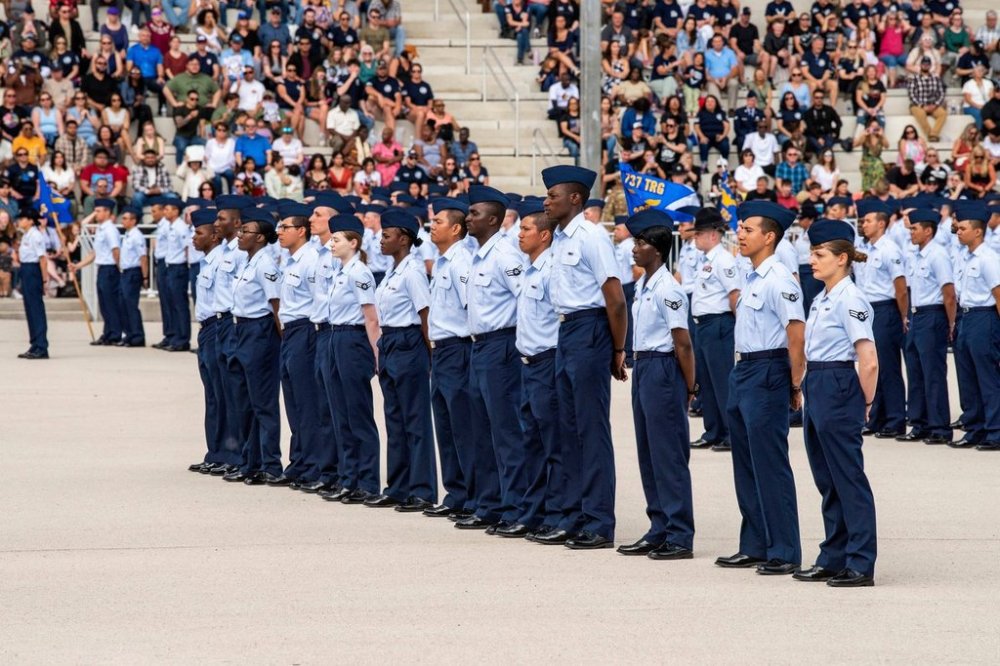What to know about deporting family members of US troops
Advertisement
Read this article for free:
or
Already have an account? Log in here »
To continue reading, please subscribe:
Monthly Digital Subscription
$1 per week for 24 weeks*
- Enjoy unlimited reading on winnipegfreepress.com
- Read the E-Edition, our digital replica newspaper
- Access News Break, our award-winning app
- Play interactive puzzles
*Billed as $4.00 plus GST every four weeks. After 24 weeks, price increases to the regular rate of $19.00 plus GST every four weeks. Offer available to new and qualified returning subscribers only. Cancel any time.
Monthly Digital Subscription
$4.75/week*
- Enjoy unlimited reading on winnipegfreepress.com
- Read the E-Edition, our digital replica newspaper
- Access News Break, our award-winning app
- Play interactive puzzles
*Billed as $19 plus GST every four weeks. Cancel any time.
To continue reading, please subscribe:
Add Free Press access to your Brandon Sun subscription for only an additional
$1 for the first 4 weeks*
*Your next subscription payment will increase by $1.00 and you will be charged $16.99 plus GST for four weeks. After four weeks, your payment will increase to $23.99 plus GST every four weeks.
Read unlimited articles for free today:
or
Already have an account? Log in here »
The deportation of a U.S. Marine’s father in California is bringing new attention to President Donald Trump’s apparent changes to a longstanding policy seeking to protect military families from deportation.
Trump’s new immigration tactics follow years of the military recruiting from immigrant communities to fill out its ranks and touting the immigration benefits for enlistees’ families.
Here’s what to know.

What was the policy?
Along with possible protection from deportation, enlisting in the military often meant deference in your family’s immigration cases and a better shot at a green card.
Those benefits were used by the armed forces to recruit more people, and, as of last year, an estimated 40,000 people were serving in the military without citizenship.
Under President Joe Biden, U.S. Immigration and Customs Enforcement considered your and your immediate family’s military service as a “significant mitigating factor” when making immigration decisions, such as removal from the country.
The idea was to boost recruitment and maintain morale, fearing that it could take a hit if a service member’s family was deported.
What did the Trump administration change?
The administration issued a memo in February doing away with the older approach.
It said that immigration authorities “will no longer exempt” categories of people that had been afforded more grace in the past.
That included families of service members or veterans, said Margaret Stock, a military immigration law expert.
Do certain crimes void the protections?
They can, but Stock said there’s no explicit list of convictions that would make someone ineligible for protections and that U.S. Citizenship and Immigration Services can waive factoring in criminal convictions in making an immigration decision.
Have other military members’ families been detained?
Yes. A Marine Corps veteran’s wife, who was seeking a green card, was detained in May in Louisiana but a judge barred her removal.
And veterans without citizenship are increasingly worried about deportation.
Will this impact recruitment to the U.S. Armed Forces?
Stock says it will.
The military has struggled in the past to meet recruitment numbers.
That’s partly because there aren’t enough U.S. citizens without immigrant family members to meet the need, said Stock, a retired lieutenant colonel in the military police, U.S. Army Reserve, who taught law at West Point during the presidencies of George W. Bush and Barack Obama.
The immigration benefits for a recruit and their family were key to expanding the military’s ranks, said Stock, and recruitment would suffer without them.
The Marine Corps told The Associated Press last month that recruiters have been told that they “are not the proper authority” to “imply that Marine Corps can secure immigration relief for applicants or their families.”

